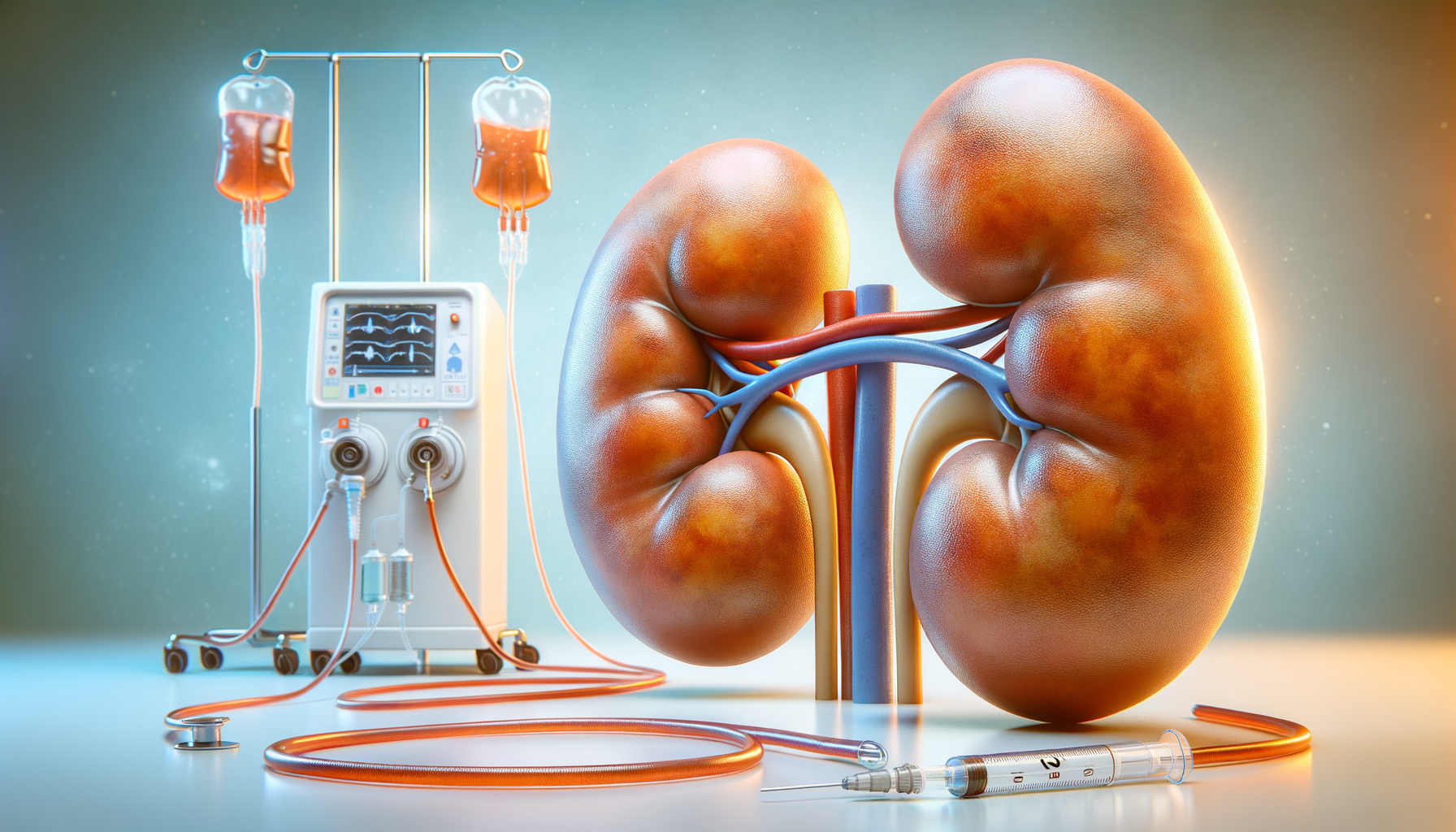Treatment for Kidney Disease
Kidney disease, a condition that affects millions worldwide, requires a multifaceted approach for effective management. Treatment options vary depending on the stage and severity of the disease. For early-stage kidney disease, lifestyle modifications are crucial. This includes maintaining a balanced diet low in sodium, potassium, and phosphorus, as well as managing blood pressure and blood sugar levels. Regular exercise and weight management also play significant roles in slowing disease progression.
In more advanced stages, medications are often prescribed to control symptoms and prevent complications. These may include drugs to lower blood pressure, control blood sugar, and reduce cholesterol levels. In some cases, medication to manage anemia or bone health is necessary. For end-stage kidney disease, dialysis or a kidney transplant may be required. Dialysis helps remove waste products from the blood when the kidneys can no longer perform this function. A kidney transplant, although more invasive, can offer a long-term solution for suitable candidates.
Overall, the treatment for kidney disease is comprehensive, involving medical, dietary, and lifestyle interventions. Early diagnosis and a tailored treatment plan are essential for managing the disease effectively and improving quality of life.
Kidney Treatment Options
When it comes to treating kidney disease, understanding the available options is crucial for patients and healthcare providers alike. Treatment plans are personalized, taking into account the individual’s health status, stage of kidney disease, and other medical conditions. One of the foundational treatments is lifestyle modification, which includes dietary changes, regular physical activity, and smoking cessation.
Medications are often prescribed to address specific symptoms or complications associated with kidney disease. For instance, angiotensin-converting enzyme (ACE) inhibitors or angiotensin receptor blockers (ARBs) are commonly used to manage high blood pressure and protect kidney function. Additionally, medications to control cholesterol levels, manage diabetes, and treat anemia are frequently part of the treatment regimen.
For patients with advanced kidney disease, dialysis becomes a critical treatment option. There are two main types of dialysis: hemodialysis and peritoneal dialysis. Hemodialysis involves filtering the blood through a machine, while peritoneal dialysis uses the lining of the abdomen to filter blood inside the body. A kidney transplant is another option for eligible patients, offering the potential for a more permanent solution. However, this involves a rigorous evaluation process and the need for lifelong immunosuppressive medications.
Ultimately, the choice of treatment depends on several factors, including the patient’s overall health, personal preferences, and the availability of medical resources. Collaborative decision-making between patients and healthcare providers is essential to determine the most appropriate treatment plan.
Stage 3 Kidney Disease Management
Stage 3 kidney disease is characterized by a moderate decrease in kidney function, with a glomerular filtration rate (GFR) between 30 and 59 mL/min. At this stage, patients may start to experience symptoms such as fatigue, swelling in the extremities, and changes in urination patterns. Effective management is crucial to slow the progression to more advanced stages.
One of the primary goals in managing stage 3 kidney disease is to control blood pressure and blood sugar levels. This can be achieved through a combination of medications and lifestyle changes. Patients are often advised to follow a kidney-friendly diet that is low in sodium, potassium, and phosphorus. Regular monitoring of kidney function and other related health parameters is essential to catch any changes early.
In addition to lifestyle modifications, medications play a significant role in managing stage 3 kidney disease. These may include blood pressure medications, diabetes medications, and drugs to manage cholesterol levels. In some cases, treatment for anemia and bone health might also be necessary.
Patient education is a critical component of managing stage 3 kidney disease. Understanding the condition, recognizing symptoms, and knowing when to seek medical attention can empower patients to take an active role in their health. Regular follow-ups with healthcare providers ensure that treatment plans are adjusted as needed to address any changes in the disease’s progression.
Early Signs of Kidney Disease
Recognizing the early signs of kidney disease is vital for timely intervention and treatment. The kidneys play a crucial role in filtering waste products from the blood, and when they start to fail, symptoms may not be immediately apparent. However, there are subtle signs that can indicate the onset of kidney disease.
One of the earliest signs is changes in urination patterns. This can include increased frequency, particularly at night, or changes in the appearance of urine, such as foamy or dark-colored urine. Swelling in the hands, feet, or face, known as edema, can also occur due to fluid retention. Fatigue and general weakness are common symptoms, often resulting from the buildup of toxins in the body.
Other early signs include difficulty concentrating, loss of appetite, and unexplained weight loss. High blood pressure is both a cause and a symptom of kidney disease, so monitoring blood pressure regularly is important. Itching and dry skin can also be indicative of kidney issues, as the buildup of waste products can affect skin health.
It is important to note that these symptoms can be caused by conditions other than kidney disease. Therefore, if any of these signs are present, it is crucial to seek medical evaluation for a proper diagnosis. Early detection of kidney disease can significantly improve the outcome by allowing for timely treatment and lifestyle modifications.
Conclusion: Navigating Kidney Health
Kidney disease is a complex condition that requires attention to detail and proactive management. From recognizing early signs to exploring various treatment options, understanding this condition is key to maintaining kidney health. Early intervention can make a significant difference in slowing disease progression and improving quality of life.
For those diagnosed with kidney disease, staying informed and engaged in their healthcare journey is crucial. Regular consultations with healthcare providers, adherence to treatment plans, and lifestyle modifications are all part of a comprehensive approach to managing kidney disease. By taking these steps, patients can better navigate the challenges of kidney disease and work towards a healthier future.








